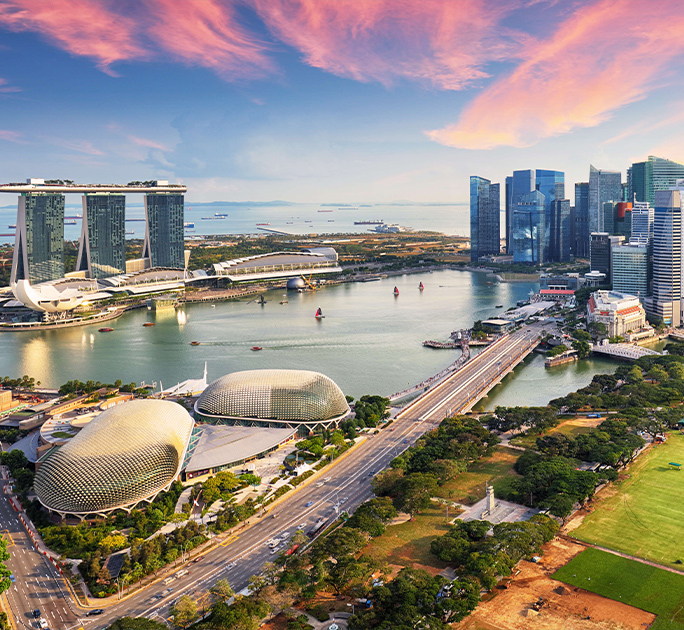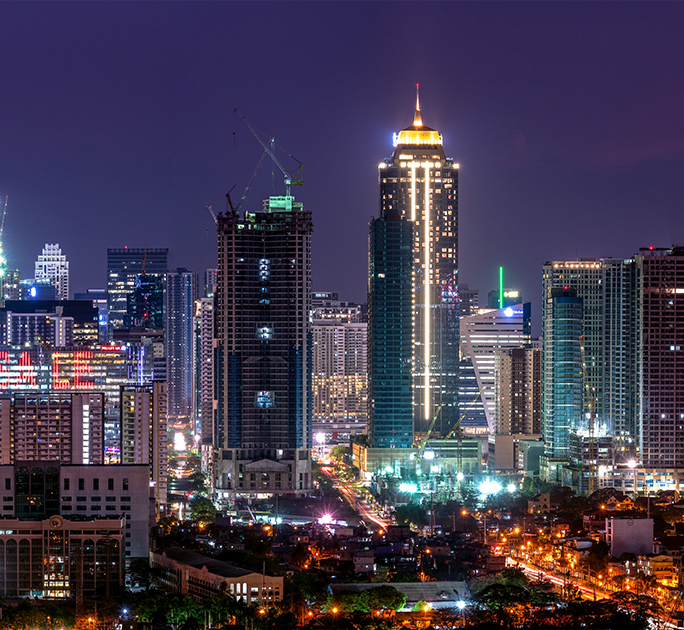Corporate Treasury & Cash Management in Indonesia
Corporate Treasury & Cash Management in Indonesia
About Indonesia
Indonesia is Southeast Asia's largest economy and a manufacturing hub for the region. The country is viewed as an evolving local financial centre for the Southeast Asia markets. Foreign exchange controls in Indonesia make it advantageous for companies with significant operations there to have a base in the country.
The Indonesian government has introduced a series of economic reforms that ease foreign ownership of businesses. Indonesia is also an important component of the One Belt One Road initiative, given its strategic location in Asia Pacific.
Singapore is the largest investor in Indonesia, followed by China, which is looking to divert excess manufacturing capacity offshore to Indonesia, further reinforcing the island nation’s status as a manufacturing hub.
Corporate Treasury in Indonesia
Indonesia is Southeast Asia's largest economy and a manufacturing hub for the region. In this section, we highlight some of the key factors relevant to treasury and cash management in Indonesia.
Financial Market Development
- Jakarta is ranked 93rd in the 2021 Global Competitiveness Report compiled by Z/Yen Group, 12 places lower than in 2020.
- The financial sector is developing, and the banking sector is crowded but offers significant opportunities due to low penetration levels. The country has one of the fastest rates for the take up of digital banking services in the region, according to McKinsey & Company, and a thriving financial technology (fintech) scene.
- Indonesia has a developing Islamic finance subsector, with 12 Islamic commercial banks that, along with the 20 Shariah business units of conventional banks, had assets of IDR 590,372 billion at the end March of 2021.
- BKPM, the Investment Coordinating Board of the Republic of Indonesia, is the primary interface between business and government, and aims to boost domestic and foreign direct investment through creating a conducive investment climate.
Sophistication of Banking Systems
- There are 107 banks in Indonesia, including four state-owned banks, as well as four branches of foreign banks. The four largest banks, three of which are state-controlled, dominate the sector.
- Indonesia's Financial Services Authority (OJK: Otoritas Jasa Keuangan) has introduced measures to accelerate consolidation in the sector, with the aim of reducing the number of banks to 60-70 within the next decade. It can also force small or struggling banks to consolidate in extraordinary circumstances.
- Indonesia has both government and corporate bonds. Outstanding local currency bonds totalled IRD3,304.3 billion at the end of March 2021.
Regulatory Bodies
- Indonesia's Financial Services Authority regulates the banking sector. It is committed to adopting international regulatory standards. Bank Indonesia (BI) is responsible for maintaining the stability of the rupiah.
- Bank Indonesia is the central bank.
Tax
- The corporate income tax (CIT) is 25%.
- Resident companies are taxed on worldwide income. Foreign companies with permanent establishments in Indonesia are generally taxed in the same manner as resident companies.
- Interest income received by a resident company (not a bank operating in Indonesia or government-approved pension fund) from
- time or saving deposits and on Bank of Indonesia certificates is subject to a final withholding tax of 20%;
- interest on bonds is subject to a final withholding tax of 15%, falling to 10% in August 2021.
- Income tax concessions of 100% of CIT for five to 20 years are available for companies in certain pioneer industries provided they meet certain criteria. CIT reductions are also available to companies operating in Special Economic Zones and Industrial Zones that meet the criteria set.
- The standard rate for Value Added Tax (VAT) is 10%, including for foreign intangible goods and services provided through the e-commerce system. The export of goods and some services is zero-rated.
- Stamp duty is payable as a fixed amount of IDR10,000 on certain documents.
- Interest expenses that are used for business purposes are generally tax deductible although a certain portion of interest arising from debt is non-tax deductible if the debt-to-equity ratio exceeds 4:1. Exceptions apply for certain industries.
- Capital gains are generally assessed with ordinary income and subject to CIT.
- Withholding tax of 20% (or a reduced rate as per the tax treaty if available) is charged on branch profits, regardless of whether they are remitted.
- Withholding tax of 15% is charged on dividends and interest for resident companies.
- Withholding tax on dividends and interest paid to non-resident companies are between 5% and 20% on dividends and between 5% and 15% on interest where a tax treaty is in place and if the non-resident can produce a Certificate of Residence. WHT is 20% for both interest and dividends if there is no tax treaty.
- Indonesia has tax treaties with more than 70 countries and territories.
- Indonesia is a signatory to the Organisation for Economic Co-operation and Development’s Multilateral Competent Authority Agreement, through which information is exchanged between tax administrations, to provide a single, global picture on some key indicators of economic activity within multinational enterprises.
Benefits for Local Treasury
- Foreign-exchange controls in Indonesia make it advantageous for companies with significant operations there to have a base in the country.
- Jakarta is viewed as an evolving local financial centre, with the potential to become a regional hub for Southeast Asia.
- Macroeconomic stability is improving but Indonesia continues to experience significant currency volatility.
- For resident companies, cash concentration, particularly through zero balancing, is offered by a number of cash management banks in Indonesia. Cross-border sweeping and notional pooling is also available to resident companies.
- Non-resident companies cannot borrow funds in Indonesia, so cannot participate in a cash concentration or cash pooling structure.






